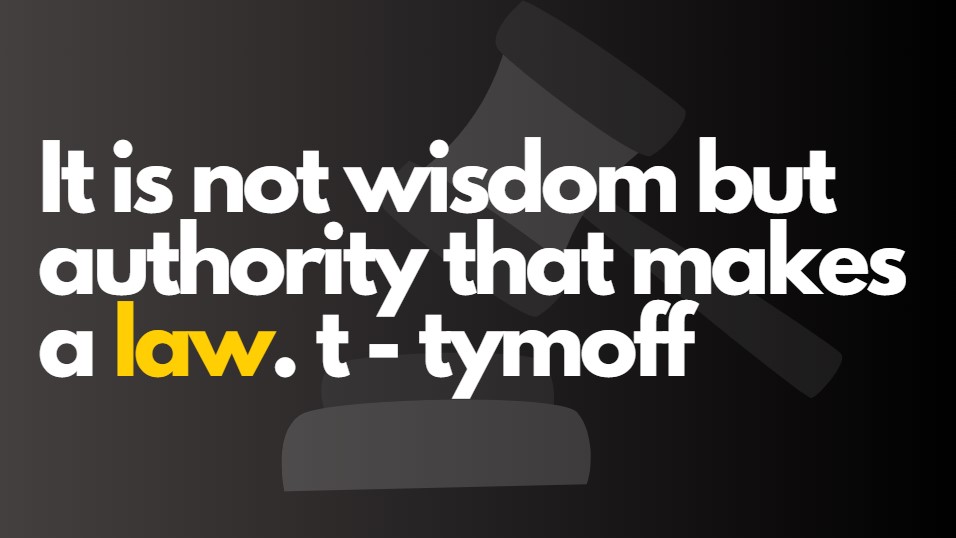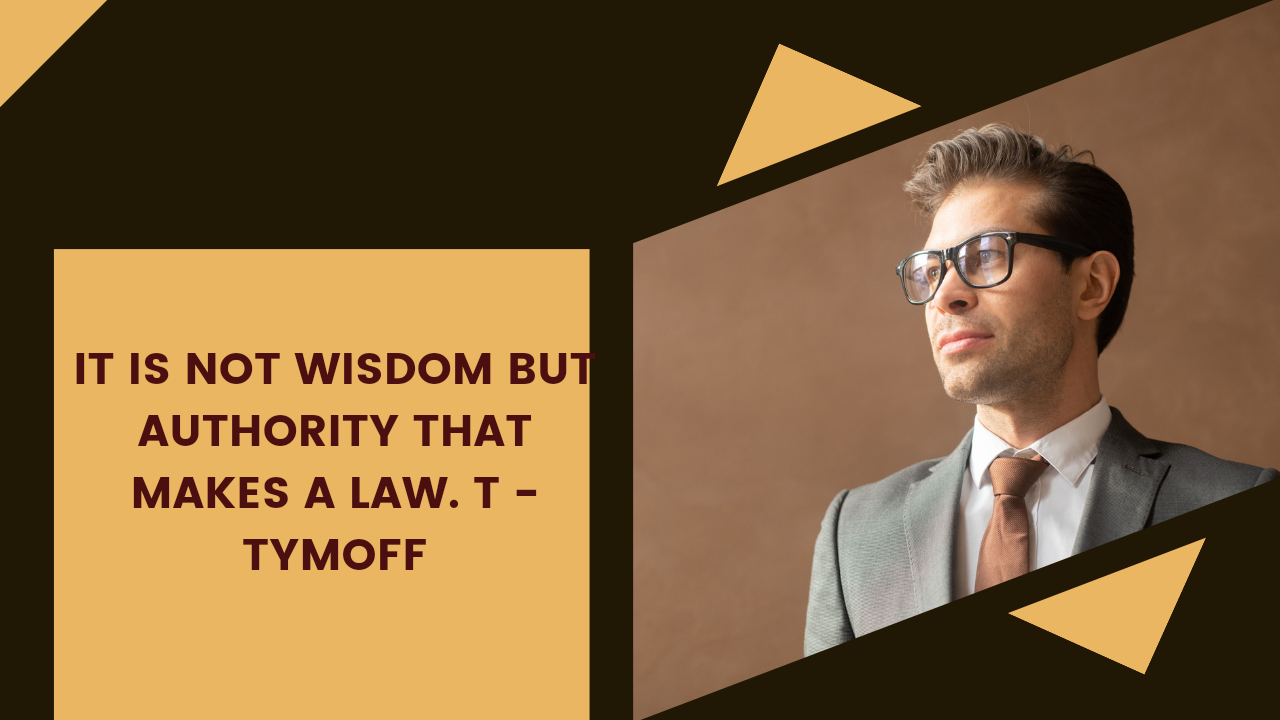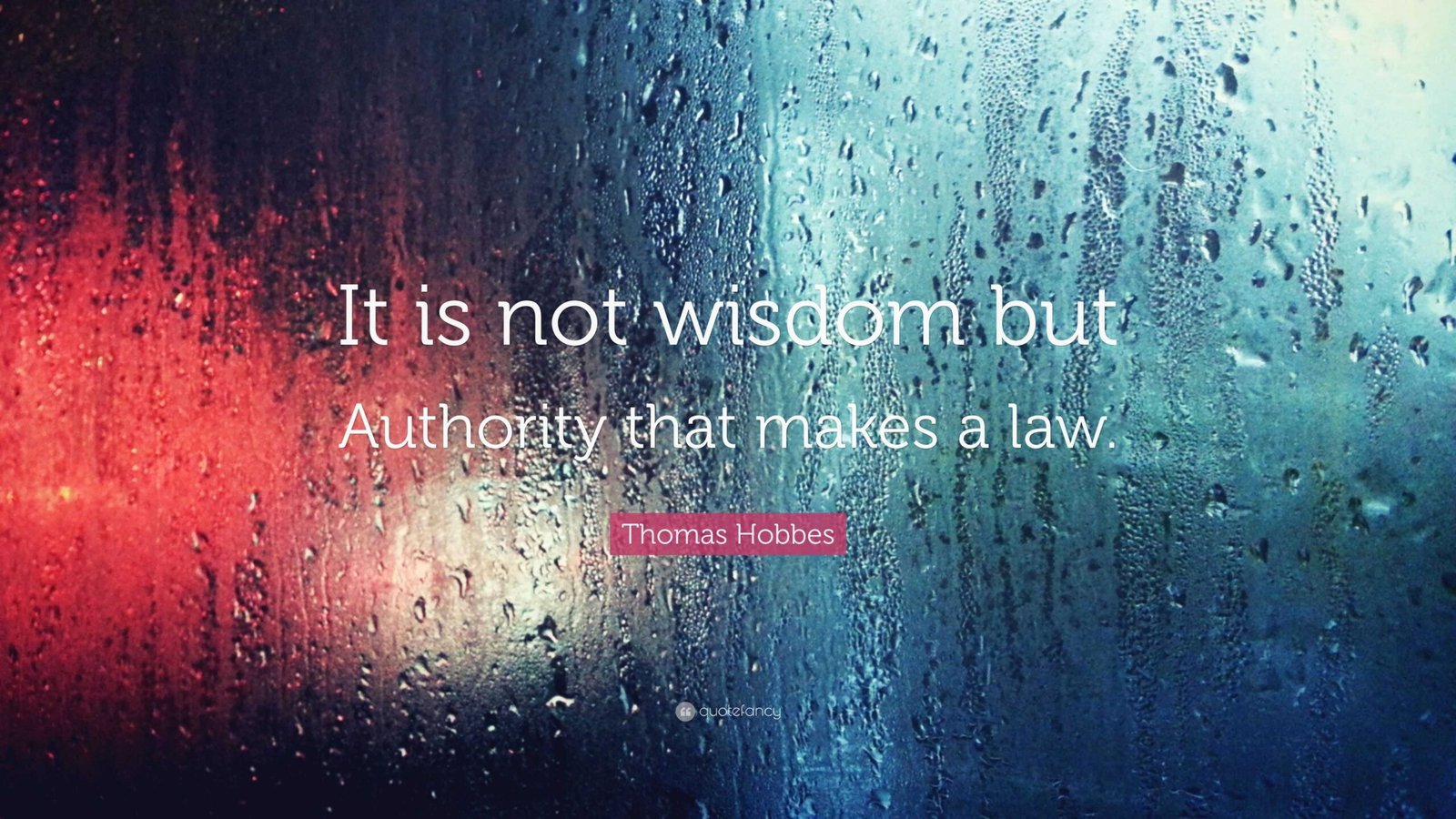Introduction:
what is It is Not Wisdom but Authority that Makes a Law” – T. Tymoff’s In the intricate tapestry of legal philosophy, one thread stands out boldly: “It is Not Wisdom but Authority that Makes a Law,” as asserted by T. Tymoff.
This enigmatic statement challenges the conventional understanding of law as a product of reasoned wisdom, instead positing it as an outcome of authoritative power. In the following exploration, we will delve into the depths of T. Tymoff’s perspective, unraveling the implications and provoking contemplation on the nature of law and the systems that govern our societies.

Conundrum: what is It is Not Wisdom but Authority
To comprehend T. Tymoff’s assertion, it is imperative to grapple with the concept of authority within the context of law. Authority, in this sense, extends beyond the boundaries of mere wisdom or knowledge; it is a force that commands compliance, irrespective of the inherent wisdom or lack thereof in the dictates it proclaims. This raises a fundamental question: Is the legitimacy of a law solely dependent on the authority from which it emanates, or does wisdom play a role in shaping the legal landscape?
must read= what Not Wisdom
The Traditional Notion of Wisdom in Law: what is It is Not Wisdom but Authority
Traditionally, the creation of laws has been associated with the collective wisdom of society’s legal scholars, philosophers, and lawmakers. The presumption is that laws are crafted based on a careful consideration of ethical principles, societal values, and the well-being of the populace. Tymoff’s assertion challenges this conventional wisdom, suggesting that the mere possession of knowledge or sagacity does not confer the right to legislate.

what is It is Not Wisdom but Authority Influence on Legal Systems:
To comprehend what is It is Not Wisdom but Authority assertion fully, it is essential to examine how authority shapes legal systems. In many societies, laws are promulgated by those in positions of authority – be it a monarch, a legislative body, or an elected government. The very act of issuing laws emanates from a position of power, and adherence is often mandated through the coercive force of the state. This raises ethical questions about the legitimacy of laws that might lack wisdom but are enforced through sheer authority.
Case Studies: Wisdom vs. Authority in Legislation:
To illustrate T. Tymoff’s point, we can scrutinize historical and contemporary examples where the authority might have trumped wisdom in lawmaking. Instances of discriminatory laws, oppressive regimes, or policies that defy ethical principles could be examined to understand the influence of authority in shaping legislation. Additionally, contrasting examples where laws driven by wisdom have stood the test of time can be explored to provide a nuanced perspective.
what is It is Not Wisdom but Authority : Help in balance
While Tymoff’s assertion might seem provocative, it is crucial to acknowledge that the interplay between wisdom and authority is complex. An ideal legal system should ideally strike a delicate balance between the two, ensuring that laws are not only authoritative but also reflective of the collective wisdom of the society they govern. Striving for this equilibrium becomes a perpetual challenge for legal theorists, policymakers, and the citizens themselves.

Evolution through what is It is Not Wisdom but Authority
As societies evolve, so do their legal systems. Tymoff’s perspective invites us to reflect on how legal frameworks adapt to changing circumstances and whether the source of authority remains a constant or transforms over time. The dynamics of legal evolution may challenge the initial premise that authority alone dictates the laws, as societal norms, values, and wisdom can exert considerable influence.
Conclusion on what is It is Not Wisdom but Authority
In the quest to unravel T. Tymoff’s assertion that “what is It is Not Wisdom but Authority that Makes a Law,” we find ourselves at the crossroads of philosophical inquiry and societal introspection. While authority undeniably plays a pivotal role in the creation and enforcement of laws, the interplay with wisdom is a nuanced dance that shapes the character of legal systems.
As we navigate the complexities of governance and legislation, we are compelled to ponder the delicate equilibrium required to ensure that laws are not just authoritative but also reflective of the collective wisdom that guides our societies toward justice and fairness.




